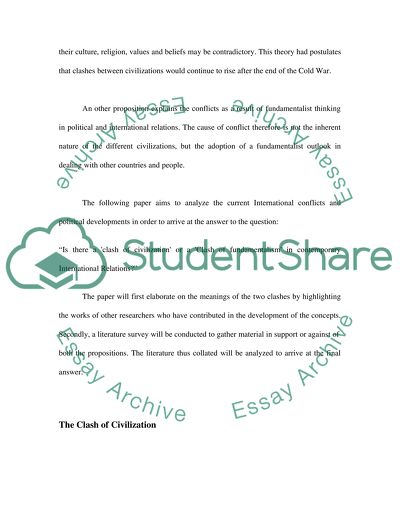Cite this document
(“Political Science - Is there a 'Clash of civilization' or a 'Clash of Essay”, n.d.)
Political Science - Is there a 'Clash of civilization' or a 'Clash of Essay. Retrieved from https://studentshare.org/miscellaneous/1545207-political-science-is-there-a-clash-of-civilization-or-a-clash-of-fundamentalism-in-contemporary-international-relations
Political Science - Is there a 'Clash of civilization' or a 'Clash of Essay. Retrieved from https://studentshare.org/miscellaneous/1545207-political-science-is-there-a-clash-of-civilization-or-a-clash-of-fundamentalism-in-contemporary-international-relations
(Political Science - Is There a 'Clash of civilization' Or a 'Clash of Essay)
Political Science - Is There a 'Clash of civilization' Or a 'Clash of Essay. https://studentshare.org/miscellaneous/1545207-political-science-is-there-a-clash-of-civilization-or-a-clash-of-fundamentalism-in-contemporary-international-relations.
Political Science - Is There a 'Clash of civilization' Or a 'Clash of Essay. https://studentshare.org/miscellaneous/1545207-political-science-is-there-a-clash-of-civilization-or-a-clash-of-fundamentalism-in-contemporary-international-relations.
“Political Science - Is There a 'Clash of civilization' Or a 'Clash of Essay”, n.d. https://studentshare.org/miscellaneous/1545207-political-science-is-there-a-clash-of-civilization-or-a-clash-of-fundamentalism-in-contemporary-international-relations.


